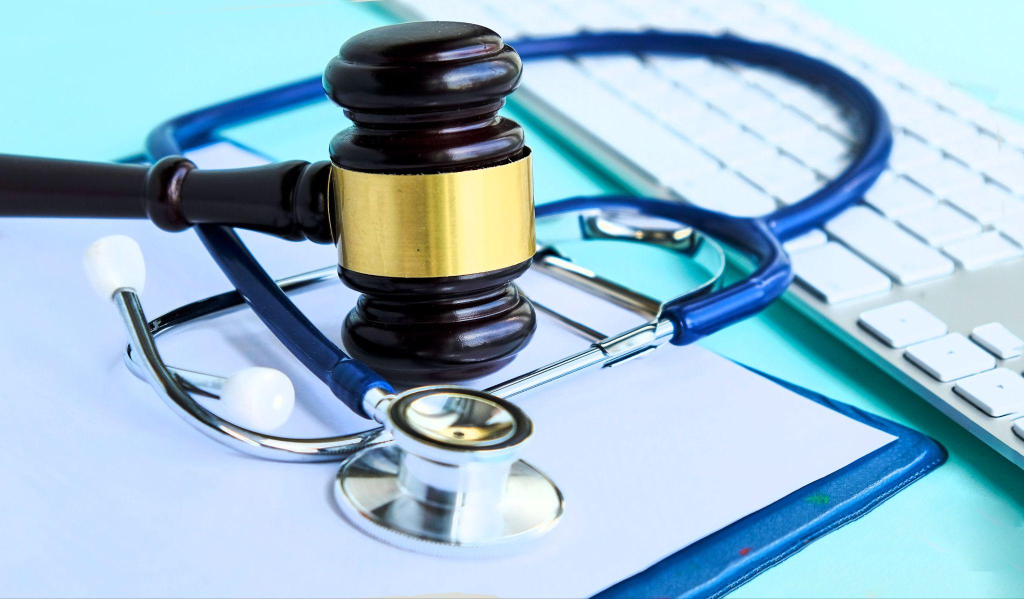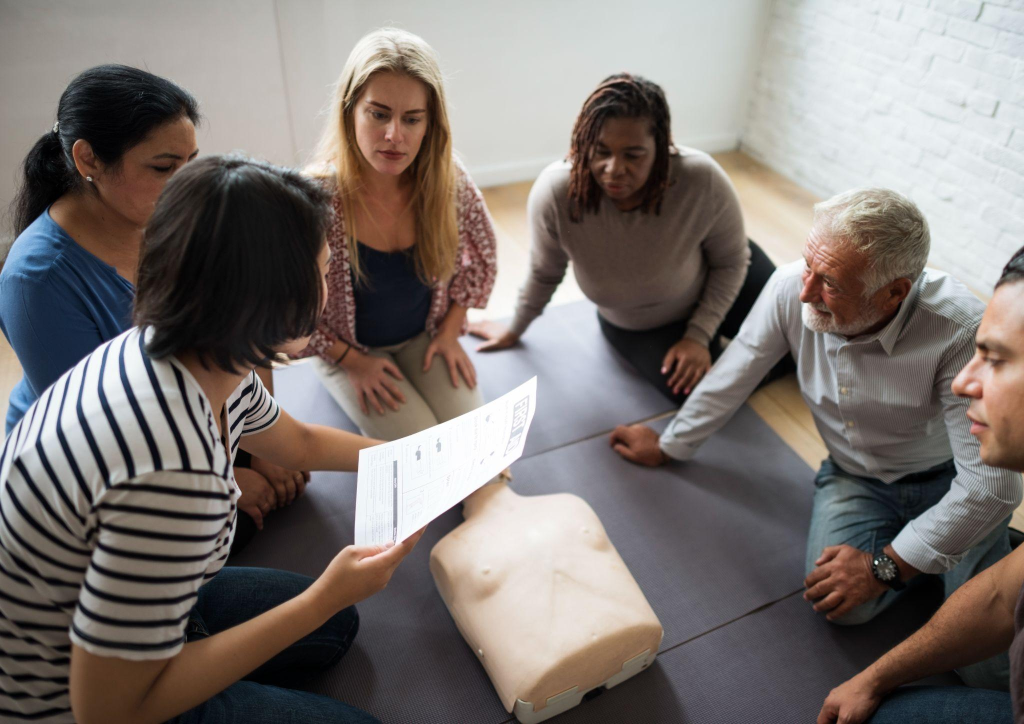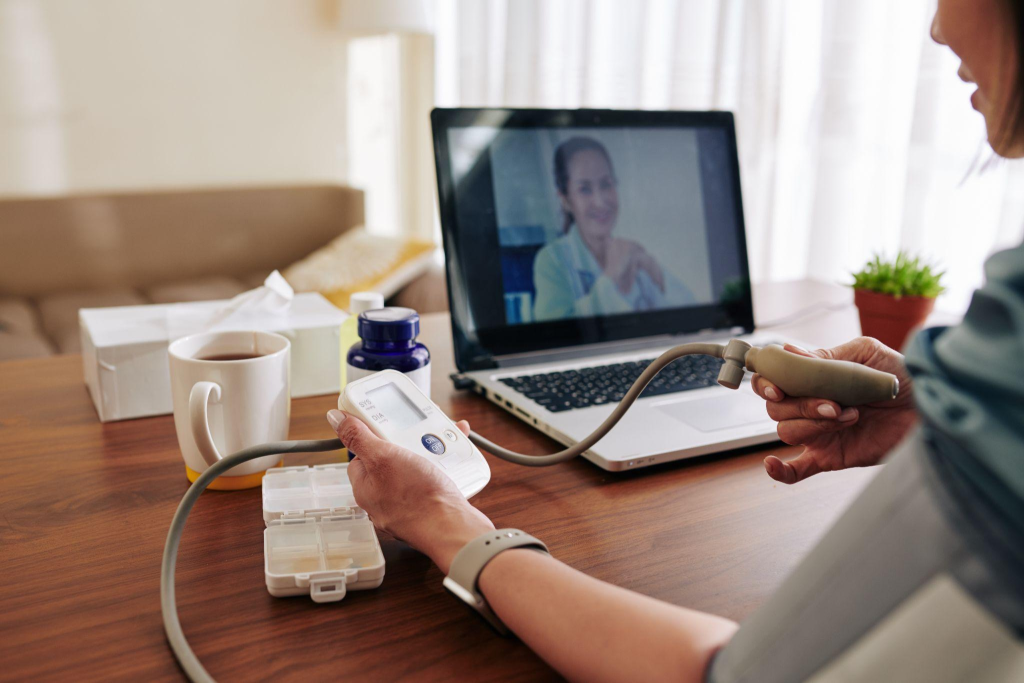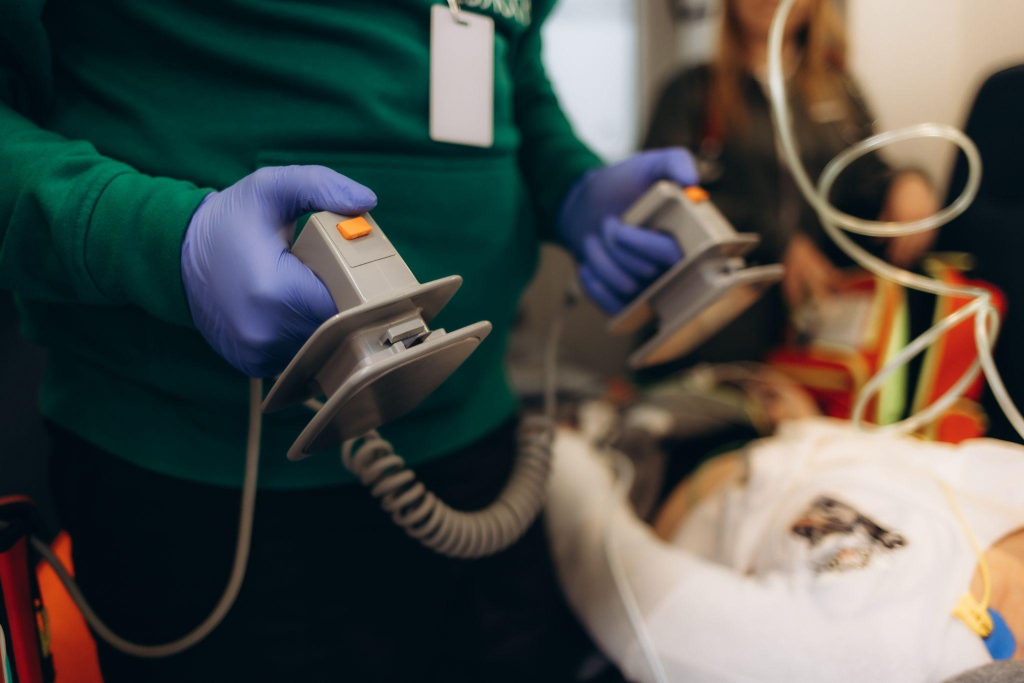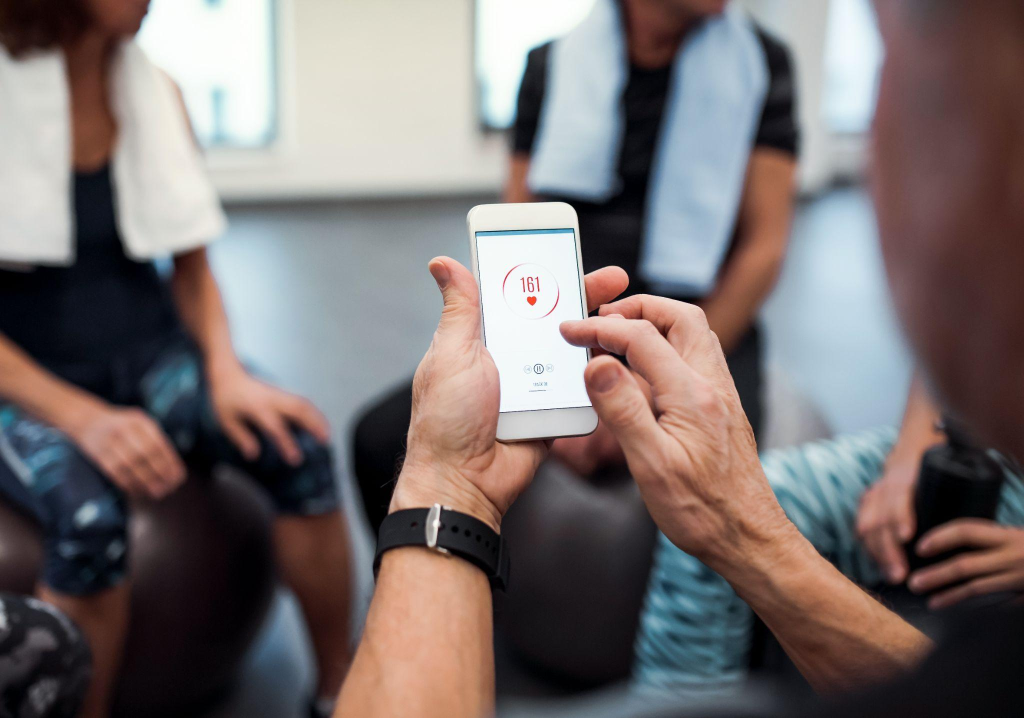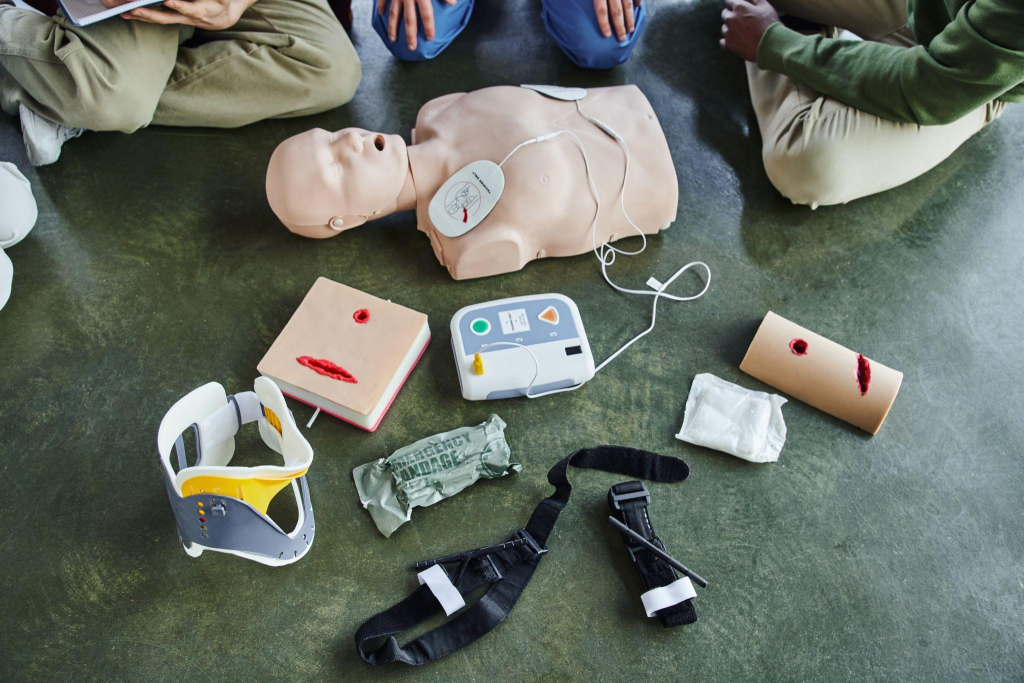Advanced Cardiovascular Life Support (ACLS) providers face unique mental and emotional challenges in their high-stakes roles. The pressure to make split-second decisions and perform life-saving interventions can take a significant toll on their well-being.
Recognizing the importance of mental health support is crucial for ACLS providers to maintain optimal performance and prevent burnout. Accessing comprehensive mental health resources from the CDC can provide valuable tools and guidance. By implementing effective coping strategies and utilizing available resources, healthcare professionals can build resilience and navigate the demands of emergency situations.
Mental health support for ACLS providers encompasses a range of techniques, from mindfulness practices to professional counseling services. These tools equip individuals with the skills necessary to manage stress, maintain focus, and deliver high-quality care in the face of adversity.
What is Mental Health Support for ACLS Providers?
Mental health support for ACLS providers focuses on strategies and resources designed to help healthcare professionals manage the unique mental and emotional stressors associated with high-pressure medical situations. Providers can also seek help for mental illnesses from NIMH for evidence-based resources and support.
ACLS providers face a myriad of challenges that can impact their mental health, including:
- Time-sensitive decision-making
- High-stakes outcomes
- Witnessing traumatic events
- Long and irregular work hours
- Emotional demands of patient care
To address these challenges, mental health support for ACLS providers encompasses a range of strategies and resources. These may include:
- Stress management techniques
- Mindfulness and relaxation practices
- Peer support programs
- Professional counseling services
- Resilience training
- Self-care practices
By prioritizing mental health and utilizing these support systems, ACLS providers can build the resilience necessary to navigate the demands of their roles. This not only benefits the individual healthcare professional but also enhances the quality of patient care they provide.
Mental health support is not a one-size-fits-all approach; rather, it should be tailored to the unique needs of each ACLS provider. Organizations that employ these healthcare professionals play a crucial role in fostering a supportive environment and providing access to resources that promote mental well-being.
Investing in mental health support for ACLS providers is a critical component of ensuring the long-term sustainability of the healthcare workforce. By prioritizing the well-being of these individuals, we can create a more resilient and effective emergency medical response system—one that is better equipped to handle the challenges of saving lives in high-stress situations.
How to Implement Mental Health Strategies for ACLS Providers

Implementing mental health strategies for ACLS providers requires a proactive approach to understanding the unique pressures of emergency settings. By analyzing these stressors, healthcare professionals can devise effective coping methods, ensuring they sustain mental resilience and deliver exceptional care. Organizations like NAMI provide mental health support and advocacy from NAMI to help healthcare workers navigate these challenges.
Identifying Stress Factors
Awareness is crucial in addressing stress effectively. ACLS providers encounter a spectrum of stress factors that demand strategic management:
- Urgency of Actions: Quick responses are vital in medical emergencies, heightening stress levels.
- Emotional Demands: Continuous exposure to critical situations can lead to emotional strain.
- Procedural Complexity: The intricate nature of medical interventions requires focused attention.
Understanding these elements allows professionals to develop strategies that enhance their ability to cope with demanding situations.
Integrating Mindfulness and Relaxation Practices
Incorporating mindfulness and relaxation techniques into everyday activities is vital for managing stress and maintaining focus during intense scenarios. Practices such as controlled breathing, guided imagery, and body scanning can significantly boost mental clarity and reduce stress. Consistent engagement with these techniques provides a solid foundation for mental fortitude.
- Controlled Breathing: This practice helps settle the mind, fostering a sense of calmness.
- Guided Imagery: Visualization exercises promote relaxation and emotional balance.
- Body Scanning: Focusing on physical sensations aids in releasing tension.
Building a Collaborative Team Environment
Establishing a supportive and cooperative team environment is essential for alleviating individual stress and optimizing patient outcomes. Facilitating open dialogue and mutual support among team members encourages collaborative problem-solving and shared learning. When professionals operate within a supportive network, they are more likely to maintain emotional well-being and perform effectively.
- Clear Dialogue: Effective communication enhances teamwork and trust.
- Collaborative Support Systems: These frameworks encourage emotional resilience and shared accountability.
By implementing these strategies, ACLS providers can create robust mental health support systems that enhance their ability to face the demands of their roles with assurance and skill.
1. Recognize Stressors in Emergency Situations
Appreciating the unique stressors of emergency situations is crucial for ACLS providers aiming to maintain mental resilience. By dissecting the complexities of their roles, providers can tailor strategies to fortify their mental health under pressure. This nuanced understanding allows for the development of precise interventions to counteract the challenges inherent in emergency medical care.
Core Challenges in Emergency Medical Settings
Several distinct challenges frequently confront ACLS providers, rooted in the demanding nature of their work. These include:
- High-Stakes Decision Making: Rapid, informed decisions are imperative in emergencies, and the pressure to act swiftly can be overwhelming.
- Emotional Strain: Regular exposure to intense scenarios—such as critical patient conditions and distressing outcomes—places an emotional burden on providers, potentially leading to stress and fatigue.
- Precision in Life-Saving Techniques: The need for accuracy and calm in executing complex interventions is a source of considerable stress, as errors can have serious consequences.
By delving into these core challenges, providers can proactively design coping mechanisms that address the specificities of their stressors.
Proactive Measures for Stress Management
Taking proactive steps to prepare for and mitigate stressors is essential in supporting ACLS providers. This involves:
- Strategic Stress Reduction: Providers can benefit from structured techniques like scenario-based training, which enhances focus and reduces anxiety through familiarity with emergency protocols.
- Emotional Support Systems: Establishing robust support networks within teams fosters resilience by providing emotional outlets and peer support.
- Ongoing Education and Skills Refinement: Engaging in continual professional development strengthens confidence and equips providers with the skills necessary to handle high-pressure situations adeptly.
Through these focused measures, ACLS providers can enhance their mental resilience, ensuring they remain effective and composed in the face of emergency challenges.
2. Practice Mindfulness and Relaxation Techniques
Incorporating mental calming techniques into the routines of ACLS providers is essential for managing stress effectively. These practices, with roots in both ancient and modern wellness strategies, offer measurable benefits in high-pressure environments. By committing to these techniques, healthcare professionals can establish a mental framework that supports resilience and clarity in critical scenarios.
Techniques for Mental Stability
Several specific practices are particularly beneficial for ACLS providers seeking to cultivate focus and calm:
- Breath Regulation: Engaging in controlled breathing helps to induce a state of relaxation, counteracting stress-induced physiological responses. By focusing on slow, deliberate breaths, providers can enhance concentration and reduce anxiety during intense moments.
- Progressive Relaxation: This method involves systematically tensing and relaxing muscle groups to alleviate physical tension and stress, fostering a sense of peace and readiness after challenging events.
- Focused Meditation: Setting aside brief periods for meditation can transform mental resilience. This practice involves concentrating on present sensations, acknowledging thoughts without attachment, and refocusing on a chosen point, such as breathing patterns or a calming phrase.
Practical Application in Healthcare Settings
Integrating these calming practices into the demanding schedules of ACLS providers requires strategic planning. Here are ways to effectively include these practices during the workday:
- Brief Mindful Intervals: Short pauses for breath regulation before critical tasks can help reset mental focus and prepare for the responsibilities ahead.
- Scheduled Meditation Sessions: Regular, brief meditation breaks can reinforce mental resilience. Even a few minutes can provide a mental reset, allowing providers to return to duty with renewed clarity.
- Utilizing Guided Resources: Accessing digital tools or recordings for guided relaxation offers structure and ease, making it more feasible for providers to engage in calming exercises without added effort.
By embedding these techniques within their routines, ACLS providers not only enhance their well-being but also improve their capability to deliver high-quality care in the most demanding situations.
3. Foster a Supportive Team Environment
Incorporating a culture that underscores collaboration and shared understanding is essential for the mental well-being of ACLS providers. A robust team dynamic not only mitigates stress but also enhances the quality of patient care delivered. In environments characterized by urgency and complexity, the synergy within the team becomes a critical factor in managing stressors effectively.
Developing Clear Interaction Frameworks
Establishing clear frameworks for interaction is pivotal in ensuring that communication flows smoothly and effectively. This involves creating structured opportunities for exchange that allow team members to engage constructively:
- Coordinated Debriefings: Implementing systematic debriefings after significant events provides a platform for reflective dialogue and learning, helping to refine practices and address potential issues.
- Inclusive Dialogue Processes: Encouraging contributions from all team members, regardless of their role, enhances inclusivity and ensures diverse perspectives are considered in decision-making.
- Reflective Listening Skills: Training in reflective listening promotes deeper understanding and connection among team members, reducing miscommunications and fostering empathy.
Enhancing Team Solidarity
Solidarity within a team can significantly alleviate individual stress, creating a more resilient work environment. By focusing on the unity and collective strength of the team, healthcare providers can nurture an atmosphere of support and cooperation:
- Unified Mission and Vision: Clearly articulating a shared mission and vision helps align team efforts and reinforces a sense of collective purpose.
- Engagement in Cohesive Activities: Participating in team-building activities outside of the work environment can strengthen interpersonal bonds and enhance camaraderie.
- Acknowledgment and Encouragement: Regularly recognizing individual and team achievements fosters a culture of positivity and motivation, encouraging continuous improvement.
By cultivating an environment grounded in mutual respect and collaborative effort, teams can effectively manage the challenges of emergency medical care. A synchronized team, committed to shared objectives, bolsters the capacity of ACLS providers to deliver high-quality care under pressure.
4. Engage in Regular Training and Simulation
For ACLS providers, immersing themselves in regular training and simulation remains essential for honing the skills and confidence needed to navigate emergency situations. Engaging in structured practice sessions allows healthcare professionals to refine their techniques and enhance their decision-making abilities. These exercises reinforce procedural knowledge, ensuring providers remain agile and prepared to act decisively.
Enhancing Preparedness Through Simulation
Simulation-based exercises offer a realistic, controlled setting where ACLS providers can rehearse critical interventions without the immediate pressure of real patient outcomes. This form of training allows healthcare professionals to test various approaches, learn from errors, and benefit from immediate feedback. By participating in these scenarios, providers can:
- Pinpoint Areas for Improvement: Simulations reveal specific knowledge gaps, allowing for targeted educational interventions.
- Solidify Procedural Knowledge: Consistent practice of procedures ensures that they are deeply ingrained, reducing response time during real emergencies.
- Encourage Team-Based Collaboration: These exercises often involve multi-disciplinary teams, fostering a better understanding and cooperation among diverse healthcare roles.
Benefits of Regular Online Courses
Participating in consistent online ACLS courses provides the flexibility and accessibility required by busy healthcare professionals. These courses allow providers to update their knowledge and skills without interrupting their work schedules. Key advantages include:
- Flexible Learning Options: Online platforms offer educational opportunities that accommodate varied schedules, ensuring continuous access to learning materials.
- Current Educational Content: Courses are frequently updated to incorporate the latest guidelines and advancements, keeping providers informed of new developments.
- Engaging and Interactive Modules: The use of dynamic, interactive modules enhances retention and caters to various learning preferences.
Through regular training and simulation, ACLS providers sustain their proficiency and confidence, ensuring they are equipped to deliver high-quality care under pressure. This commitment to continuous education and practice supports not only individual growth but also the overall effectiveness of emergency medical teams.
5. Utilize Professional Mental Health Resources
In high-pressure medical settings, leveraging professional mental health services is crucial for ACLS providers. Accessing mental health and substance use resources from SAMHSA can provide tailored interventions and support for healthcare professionals.
Specialized Support Approaches
Mental health resources deliver targeted interventions designed specifically for the medical community. These services offer:
- Confidential Consultations: Private sessions with experienced therapists provide a safe space for healthcare providers to discuss their challenges and develop personal insights.
- Behavioral Techniques: Utilizing therapeutic approaches like cognitive-behavioral therapy (CBT) can empower providers to effectively manage stress and anxiety.
- Comprehensive Care: Therapists trained in trauma-informed practices deliver care that addresses the emotional impact of high-stress scenarios, offering support for both immediate and long-term recovery.
Enhancing Mental Fortitude
Professional support not only aids in managing immediate stressors but also strengthens overall mental fortitude. By collaborating with mental health experts, ACLS providers can:
- Develop Adaptive Strategies: Learn practical techniques to navigate high-pressure situations with greater ease.
- Enhance Emotional Stability: Acquire tools to maintain emotional balance, which is crucial in preventing burnout and ensuring sustained performance.
- Advance Personal Development: Engage in continuous growth that supports both professional excellence and personal well-being.
By integrating these mental health resources into their routine, ACLS providers can bolster their resilience, ensuring they remain equipped to deliver effective and compassionate care in challenging environments.
6. Develop Personal Resilience and Coping Skills
Enhancing personal resilience is vital for ACLS providers who face high-intensity environments. This involves adopting a mindset that not only withstands pressure but excels under it. Through targeted resilience development, providers gain crucial strategies to manage stressors effectively, improving both their professional performance and personal health.
Strengthening Resilience Through Structured Programs
Resilience can be cultivated through deliberate practice and structured learning. Participating in programs designed to boost mental agility and adaptability is key. These programs typically include:
- Realistic Simulation Drills: Engaging in drills that mimic real-life emergency scenarios helps providers practice maintaining poise and competence.
- Critical Incident Reviews: Analyzing past incidents with a focus on learning and improvement encourages a culture of growth and adaptation.
- Skill Reinforcement Workshops: Regular workshops focused on skill enhancement help solidify responses to high-pressure situations, ensuring readiness when it matters most.
Techniques for Building Mental Strength
Developing resilience also involves mastering techniques that reinforce mental robustness. Consistent practice of these methods can transform stress responses:
- Mental Rehearsal: Visualizing successful outcomes and interventions builds assurance and mental preparation.
- Constructive Self-Dialogue: Engaging in positive, empowering inner conversations helps counterbalance stress and enhance focus.
- Proactive Stress Management: Employing flexible strategies, including problem-solving and leveraging support systems, enables providers to address stressors effectively and sustain balance.
By integrating these resilience-enhancing practices into their daily routines, ACLS providers can fortify their mental strength, supporting peak performance and sustained well-being amidst challenging circumstances.
7. Implement Self-Care Practices
Incorporating personalized wellness routines is crucial for ACLS providers to sustain both their mental and physical health. These routines form the backbone of resilience, providing essential support amid the challenges of emergency medical care. By focusing on wellness, providers enhance their capability to manage stress with greater clarity and effectiveness.
Key Elements of Personal Wellness
A comprehensive approach to wellness should address multiple dimensions of health. Important elements include:
- Regular Movement: Engaging in physical activities, such as tai chi or swimming, supports physical endurance and serves as an effective outlet for stress reduction. These activities also enhance cardiovascular health and mental focus.
- Mindful Nutrition: Prioritizing a diet that includes fresh, nutrient-dense foods can optimize energy levels and mental sharpness. Focusing on hydration and balanced meals helps maintain consistent performance under pressure.
- Restorative Sleep: Ensuring sufficient rest is vital for cognitive recovery and emotional stability. Establishing a bedtime routine that includes relaxation techniques, like reading or gentle stretching, can improve sleep quality.
Approaches for Lasting Wellness
To make wellness routines both effective and sustainable, ACLS providers can adopt these approaches:
- Intentional Planning: Setting aside dedicated time for wellness activities ensures they become a regular part of daily life. This proactive scheduling helps integrate wellness into busy schedules without neglect.
- Focused Awareness: Engaging in activities with full attention enhances their restorative benefits. Whether savoring a meal or practicing yoga, being present amplifies the positive impact on well-being.
- Collective Participation: Involving friends or colleagues in wellness activities can bolster motivation and accountability. This shared commitment to wellness fosters a supportive community and reinforces the importance of self-care.
By embedding these personalized wellness practices into their routines, ACLS providers not only protect their health but also bolster their ability to provide exceptional care. This dedication to personal wellness is a key component in maintaining a thriving and effective career in emergency medical services.
Tips on Maintaining Mental Health for ACLS Providers

Proactively accessing mental health resources is essential for ACLS providers to sustain their emotional and psychological resilience. The mental health support directory from Mental Health First Aid offers a wide range of tools and services to support healthcare professionals.
Consistent Practice and Preparation
Engaging regularly in hands-on training and skill enhancement sessions is vital for ACLS providers to sharpen their expertise and bolster confidence. These ongoing educational activities ensure that providers remain adept at handling the complexities of emergency care. By immersing themselves in practical experiences, providers reduce uncertainty, which in turn alleviates stress associated with high-pressure scenarios.
- Dynamic Training Exercises: Participating in interactive training sessions allows providers to practice and refine their skills in realistic scenarios, fostering adaptability and precision.
- Collaborative Workshops: Engaging in workshops with colleagues encourages the exchange of best practices and innovative solutions, enriching the learning experience.
- Self-Reflection and Feedback: Committing to regular self-assessment and seeking constructive feedback helps identify strengths and areas for improvement, guiding personal and professional growth.
By integrating these strategies and resources into their routines, ACLS providers can cultivate a robust foundation for mental health, ensuring they are equipped to deliver exceptional patient care under challenging conditions.
Prioritizing your mental well-being is a critical component of delivering exceptional patient care as an ACLS provider. By implementing these strategies and utilizing the resources available, you can build the resilience necessary to navigate the demands of emergency medical situations. We at Affordable ACLS are committed to supporting your professional growth and personal well-being, so join us today and purchase your certification or recertification course to enhance your skills and confidence as an ACLS provider.




